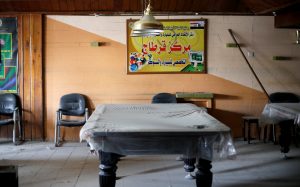By Michael Georgy
MOSUL, Iraq (Reuters) – The flyblown corpses of Islamic State militants have been rotting along a main street in north Mosul for two weeks, a health risk for passersby. Suicide bombers’ belts beside the fighters can still explode, killing anyone nearby.
But the Iraqi army has no intention of burying the jihadists and hopes as many people as possible will get a good look at their blackened bodies, torn apart by bombs and bullets.
As Iraqi forces prepare to expand their offensive against Islamic State from east to west Mosul, they want to stamp out any sympathy that residents may have for the group, which won instant support when it seized the vast city in 2014.
“We will leave the terrorists there,” said Ibrahim Mohamed, a soldier who was standing near three dead jihadists, ignoring the stench.
His cousin suffered death by electrocution at the hands of jihadists during Islamic State’s harsh rule of Mosul because he was a policeman.
“The message is clear to Iraqis, to keep them from joining or supporting Daesh (Islamic State). This will be your fate. The Iraqi army will finish you off,” he said.
A suicide bomber’s belt, with its detonation pin still in place, lay in the street a few feet away, near some clothing once worn by a militant.
The Iraqi army has come a long way since it collapsed in the face of Islamic State’s lightning advance into northern Iraq. After retaking half of Mosul in three months of fighting, Iraqi forces are poised to enter the western side of the city.
Victory there would mean the end of Islamic State’s self-proclaimed caliphate, though Iraqi officials expect the group to fight on as insurgents in Iraq and inspire attacks in the West.
PSYCHOLOGICAL WEAPON
The corpses are left on view as a psychological weapon to deter Islamic State sleeper cells, which Iraqi officials say are highly effective and distributed across the country.
Islamic State has executed thousands of Iraqi soldiers and policemen, and their comrades are eager for revenge.
“We leave them in the street like that so the dogs eat them,” said soldier Asaad Hussein. “We also want the citizens to know there is a price for supporting terrorists.”
Sunni Mosul had accused the Shi’ite-led Baghdad government and army of widespread abuses, which they deny.
Islamic State exploited that resentment but started losing popularity after it imposed its radical version of Islam and shot or beheaded anyone deemed an enemy.
Iraqi citizens don’t seem to mind the gory sight of the bodies, with people walking past them every day as Mosul begins the work of rebuilding entire neighborhoods pulverized by Islamic State car bombs and U.S.-led air strikes.
Labourer Youssef Salim observed the corpses, still with army boots on their feet, and paused to reflect on life under Islamic State, which has lost ground in Iraq and other Arab countries. He said the bodies should not be moved.
“Do you know what smoking one, just one cigarette meant?” he asked. “Twenty-five lashes in a public square where people were forced to watch you suffer.
“If your beard length did not meet their requirements, that was a month in jail and 100 lashes in public.”
SPREADING FEAR
The militants are no longer in charge in east Mosul but they are still very capable of spreading fear.
Two men approached a soldier to complain that there were suspicious wires that may be attached to a bomb on a door at the factory where they work.
Minutes later, an increasingly familiar scene unfolded. Soldiers looked up and spotted a drone aircraft operated by Islamic State militants, located about 600 meters away across the Tigris River, which bisects Mosul.
Iraqi forces opened fired with their assault rifles, hoping to blast the small aircraft – an Islamic State weapon of choice – out of the sky before it could drop a bomb.
A few streets away, a group of young boys walked towards three more Islamic State corpses.
“The bodies should stay. Daesh killed lots of people so why should they be buried,” said Salem Jamil, 13, who was carrying a plastic bag filled with old electric wiring he hopes to sell.
But a man who approached said the bodies should be buried because that is everyone’s right.
The three militants were shot when they tried to sneak through some trees to kill soldiers.
One of the soldiers stood proudly over the dead men, including one still wearing a suicide belt. He smiled and pointed to a cigarette stuffed in one of the jihadist’s nostrils.
“We put it there because of the terrible things they did to Iraqis,” said the soldier, Asaad Najif. “The fate of any terrorist is clear. We will find you and kill you.”
(Editing by Giles Elgood)









